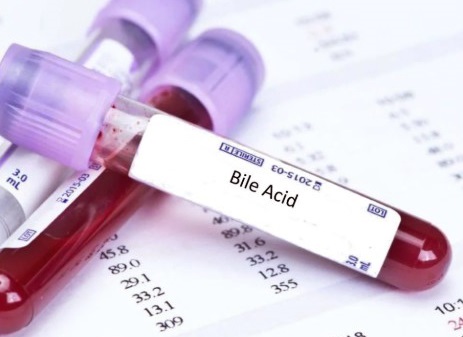Chenodeoxycholic Acid and Glycochenodeoxycholic Acid Drop Tied to Severe COVID-19 in Elderly
Nikhil Prasad Fact checked by:Thailand Medical News Team Aug 15, 2025 5 months, 4 weeks, 1 day, 16 hours, 58 minutes ago
Thailand Medical News: A major study by Chinese researchers has revealed that two crucial bile acids—chenodeoxycholic acid (CDCA) and glycochenodeoxycholic acid (GCDCA)—may hold the key to predicting which elderly COVID-19 patients are at risk of developing severe disease. Scientists from the Chinese People’s Liberation Army (PLA) Medical School, The Fifth and Seventh Medical Centers of the Chinese PLA General Hospital, and the Yu-Yue Pathology Scientific Research Center in Chongqing discovered that these bile acids were significantly reduced in elderly patients who later experienced life-threatening complications.
 Chenodeoxycholic Acid and Glycochenodeoxycholic Acid Drop Tied to Severe COVID-19 in Elderly
Chenodeoxycholic Acid and Glycochenodeoxycholic Acid Drop Tied to Severe COVID-19 in Elderly
The study analyzed blood samples from 72 elderly patients using advanced metabolomics techniques. The findings revealed that lower levels of CDCA and GCDCA at the time of hospital admission strongly correlated with disease progression. This
Thailand Medical News report explains that these two bile acids not only serve as predictive markers but also play a key role in controlling the body’s inflammatory response to SARS-CoV-2.
Bile Acid Levels as Early Warning Markers
Patients who transitioned from mild or moderate illness to severe COVID-19 consistently had much lower levels of CDCA and GCDCA compared to those who recovered without complications. The reduction in these bile acids was also closely linked with elevated inflammatory markers such as C-reactive protein (CRP) and procalcitonin (PCT).
Interestingly, when researchers compared the predictive power of various clinical markers, CDCA outperformed commonly used indicators like IL-6 levels and neutrophil counts. This highlights its potential as a reliable early warning biomarker for elderly patients at risk of deterioration.
Stopping the Cytokine Storm
To explore how these bile acids work, researchers conducted lab experiments on immune cells called monocytes. They found that both chenodeoxycholic acid and glycochenodeoxycholic acid dramatically reduced the production of dangerous inflammatory molecules such as IL-1β, IL-6, IL-8, TNF-α, and CXCL5 after exposure to inactivated SARS-CoV-2. These findings indicate that CDCA and GCDCA can blunt the “cytokine storm” often responsible for severe COVID-19 complications.
Further analysis revealed that the anti-inflammatory effects are mediated through two receptors, FXR and TGR5. Activating these receptors reduced inflammation, while blocking them reversed the benefits of CDCA and GCDCA.
A New Pathway for COVID-19 Therapies
The study also discovered that the bile acids disrupt the NOD-like receptor signaling pathway, a key driver of the overactive immune responses seen in severe COVID-19. By suppressing this pathway, chenodeoxycholic acid and glycochenodeoxycholic acid appear to control excessive inflammation and tissue damage.
These results suggest t
hat monitoring these bile acid levels could help doctors predict severe disease much earlier. In the future, drugs that boost CDCA and GCDCA activity might even serve as treatments for high-risk patients.
Conclusions
The study provides strong evidence that reduced levels of chenodeoxycholic acid and glycochenodeoxycholic acid can predict disease progression in elderly COVID-19 patients and that these compounds play a vital role in regulating inflammation. Early detection of their decline could allow clinicians to intervene sooner and potentially save lives.
The study findings were published in the peer reviewed journal: Biomolecules
https://www.mdpi.com/2218-273X/15/7/943
For the latest COVID-19 news, keep on logging to
Thailand Medical News.
Read Also:
https://www.thailandmedical.news/news/bile-acids-protect-against-sars-cov-2-by-inhibiting-the-farnesoid-x-receptor
https://www.thailandmedical.news/news/phytochemicals-nobiletin-and-eriodictyol-can-help-suppress-neuroinflammation-caused-by-sars-cov-2-spike-protein
https://www.thailandmedical.news/news/harvard-researchers-discover-that-bile-acids-help-regulate-gut-immunity-and-inflammation-
